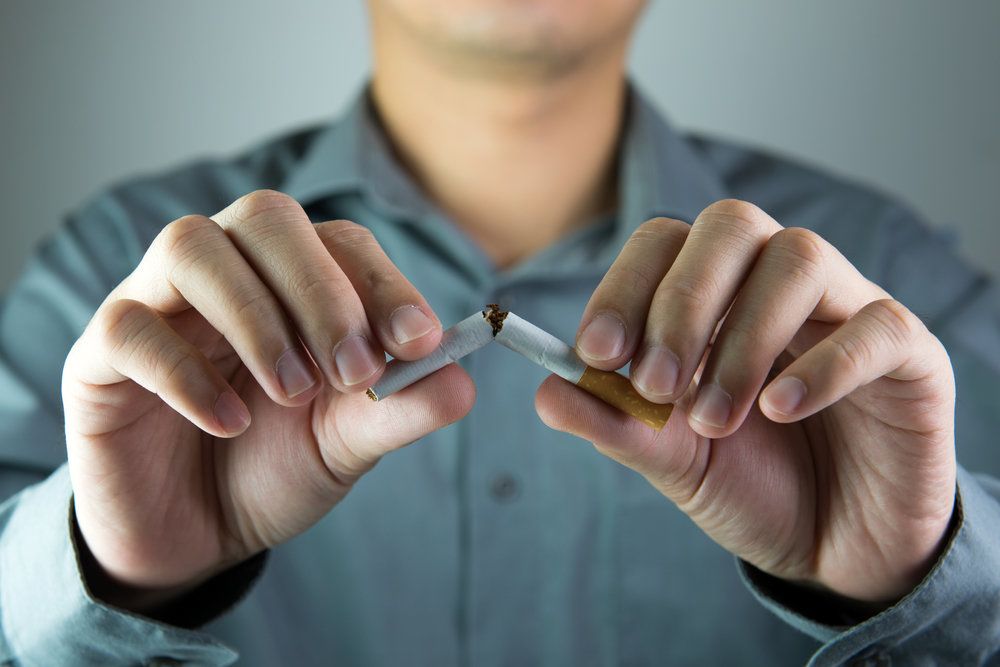Dental Implants and Smoking
 If you want the most secure anchor for your dentures, dental bridges, or crowns, dental implants are the best possible option. Dental implants replace the root of the tooth, providing your prosthetic with strong support.
If you want the most secure anchor for your dentures, dental bridges, or crowns, dental implants are the best possible option. Dental implants replace the root of the tooth, providing your prosthetic with strong support.
At Dr. Nathaniel Podilsky’s practice in Downtown Edmonton, Alberta, we replace missing teeth with mini and traditional dental implants. Not smoking is a critical component of implant success. Here, we discuss dental implants and smoking so patients understand why it is so important to refrain from this bad habit before and after surgery.
Dental Implant Success Rates in Smokers
According to a study published in the Journal of Dental Research, overall success rates for dental implants are above 95 percent. In a study review published in the Journal of International Society of Preventive & Community Dentistry, a failure rate of 6.5 to 20 percent was reported in smokers.
Increased Rate of Implant Osseointegration Failure
Osseointegration is a critical component of dental implant success. This three- to six-month healing process takes place after the dental implants are placed. During the osseointegration period, the jawbone, ligaments, and gums fuse around the implant, making it a part of the body’s anatomy. If the hard and soft tissues of the mouth do not integrate with the implants, the implants will not be held firmly in place and may not support a dental restoration.
Smoking is known to slow wound healing, which may contribute to the higher rates of osseointegration failure among smokers. However, results of the aforementioned study review indicate that exposure of the peri-implant tissues to tobacco smoke increases the risk of implant failure. This harmful process appears similar to the damage that takes place when periodontal tissues are exposed to smoke.
Increased Rate of Marginal Bone Loss
Marginal bone loss around dental implants can affect their long-term stability and success. According to the study review in the Journal of International Society of Preventive & Community Dentistry, researchers reported significantly greater marginal bone loss around implants in heavy smokers (those who smoked more than 14 cigarettes per day) when compared to those with lower cigarette use (less than 14 cigarettes per day).
Increased Risk of Peri-implantitis and Gum Disease
It is well known that smoking increases the risk of gum disease, an infection of the periodontal tissues. It also increases the risk of peri-implantitis, a condition in which the hard and soft tissues around the implant become inflamed. Both of these conditions can increase the risk of implant failure.
More Difficult to Maintain Good Oral Hygiene
Smoking makes it difficult to maintain good oral hygiene, which reduces the risk of a dental infection that can contribute to implant failure. After dental implant surgery, brushing twice and day and flossing once a day, combined with not smoking, can increase your chances of dental implant success.
Smoking Guidelines
Smoking is not necessarily a contraindication for dental implant surgery. But patients must be willing to quit for several weeks. According to the aforementioned study review, quitting at least one week before surgery improves the blood and the short-term side effects of nicotine use. After implant placement, patients should avoid smoking for at least two months.
Contact Our Practice
To find out if dental implants are right for you, contact our practice online or call us in Downtown Edmonton at (780) 428-6846.


